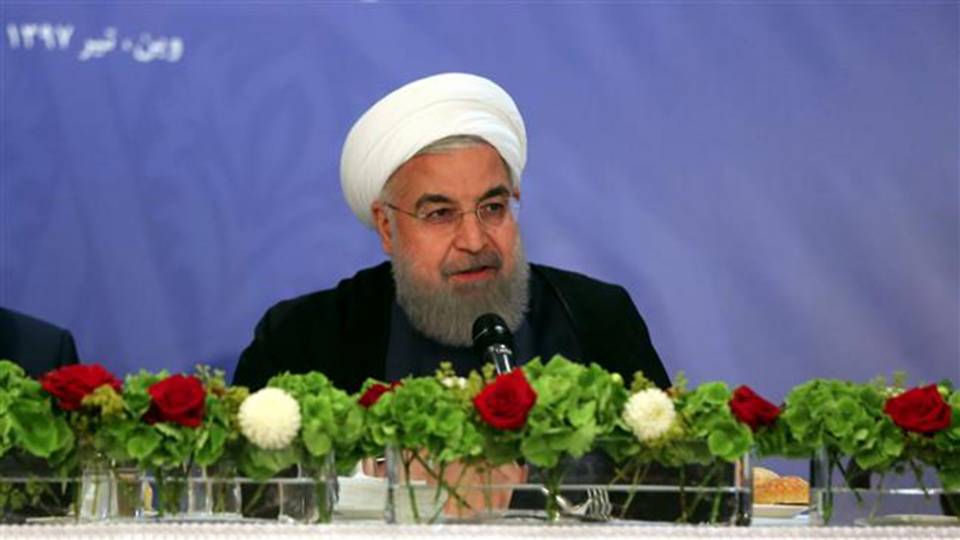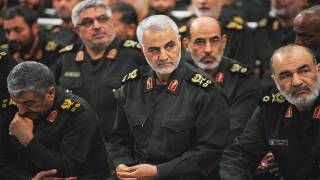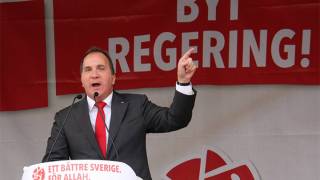US Sidelined as Five Powers Set to Give Iran New Assurance
Top diplomats from world powers will meet on Friday in a bid to defend their landmark nuclear deal with Iran from attack by President Donald Trump.
Foreign ministers from China, France, Germany, Russia and the U.K. will convene in Vienna for the first time without the U.S. in order “to ensure the continued implementation” of the accord, which granted Iran a reprieve from sanctions in exchange for limits to its nuclear program, according to a European Union statement on Wednesday. Trump abandoned the deal in May and reimposed sanctions against countries and companies doing business with Iran.
“Austria and the European Union are ready to maintain and deepen the framework for cooperation with Iran,” Austrian President Alexander Van der Bellen said following a meeting in the Austrian capital with his Iranian counterpart, Hassan Rouhani. U.S. threats to impose secondary sanctions violate the rights of European companies and individuals, Van der Bellen said.
U.S. Accuses
Iran, a key oil exporter that also holds the world’s second biggest natural gas reserves, has demanded EU countries come up with concrete economic steps to defend the Joint Comprehensive Plan of Action. The July 2015 accord, which capped Iran’s most sensitive nuclear work in return for the lifting of many sanctions, was plunged into crisis by Trump’s decision, even as international inspectors continued to verify Rouhani’s government was living up to its side of the bargain. The U.S. accuses Iran of violating the accord’s spirit through destabilizing activities the Middle East.
“We won’t leave the JCPOA as long as we can profit from the accord,” Rouhani said on Wednesday, standing next to Van der Bellen. The Iranian leader was on the second leg of a two-day tour of Austria and Switzerland, the two neutral countries in the heart of Europe where the nuclear deal was negotiated.
A top State Department official warned Tuesday in Washington that any plans to continue doing business with Iran will run afoul of U.S. sanctions.
“Our goal is to increase pressure on the Iranian regime by reducing to zero its revenue from crude oil sales,” said Brian Hook, who has led Trump administration discussions with European allies on the sanctions. “We are prepared to work with countries that are reducing their imports on a case-by-case basis, but as with our other sanctions we are not looking to grant waivers or licenses.”
A large bulk of Iran’s oil revenues and banking ties will be at stake if neither can be protected by the EU. Rouhani, who’s facing intense pressure from hardline conservatives at home who accuse him of being naïve for ever trusting the U.S., would be left with little incentive to remain in the deal and in compliance with its terms and conditions.
Proposals to allow European finance to bypass American sanctions have been met with skepticism by EU states, which are also trying to negotiate trade disputes with the Trump administration that could threaten U.S. exports worth more than $435 billion. By comparison, Iran is the bloc’s 66th biggest trading partner with less than $24 billion of goods exchanging hands, according to data compiled by Bloomberg.
Iran’s “economy is likely to suffer badly, with the U.S. actions set to exacerbate an already difficult situation,” according to a statement from Richard Grieveson, an economist at the Vienna Institute for International Economic Studies, who co-wrote a report on Iran published Tuesday. “Much of the good work of recent years could be undone.”






















